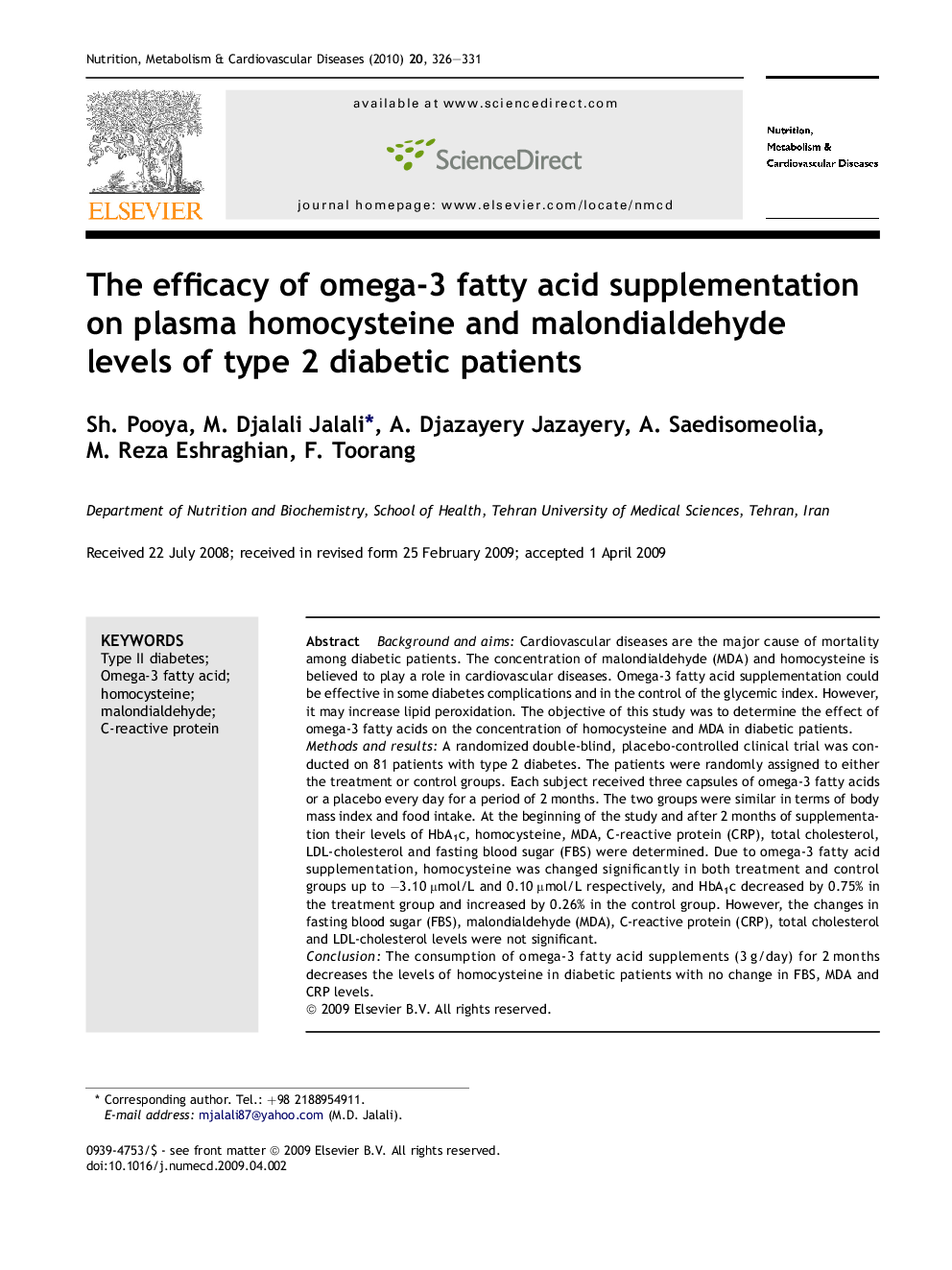| Article ID | Journal | Published Year | Pages | File Type |
|---|---|---|---|---|
| 3002902 | Nutrition, Metabolism and Cardiovascular Diseases | 2010 | 6 Pages |
Background and aimsCardiovascular diseases are the major cause of mortality among diabetic patients. The concentration of malondialdehyde (MDA) and homocysteine is believed to play a role in cardiovascular diseases. Omega-3 fatty acid supplementation could be effective in some diabetes complications and in the control of the glycemic index. However, it may increase lipid peroxidation. The objective of this study was to determine the effect of omega-3 fatty acids on the concentration of homocysteine and MDA in diabetic patients.Methods and resultsA randomized double-blind, placebo-controlled clinical trial was conducted on 81 patients with type 2 diabetes. The patients were randomly assigned to either the treatment or control groups. Each subject received three capsules of omega-3 fatty acids or a placebo every day for a period of 2 months. The two groups were similar in terms of body mass index and food intake. At the beginning of the study and after 2 months of supplementation their levels of HbA1c, homocysteine, MDA, C-reactive protein (CRP), total cholesterol, LDL-cholesterol and fasting blood sugar (FBS) were determined. Due to omega-3 fatty acid supplementation, homocysteine was changed significantly in both treatment and control groups up to −3.10 μmol/L and 0.10 μmol/L respectively, and HbA1c decreased by 0.75% in the treatment group and increased by 0.26% in the control group. However, the changes in fasting blood sugar (FBS), malondialdehyde (MDA), C-reactive protein (CRP), total cholesterol and LDL-cholesterol levels were not significant.ConclusionThe consumption of omega-3 fatty acid supplements (3 g/day) for 2 months decreases the levels of homocysteine in diabetic patients with no change in FBS, MDA and CRP levels.
